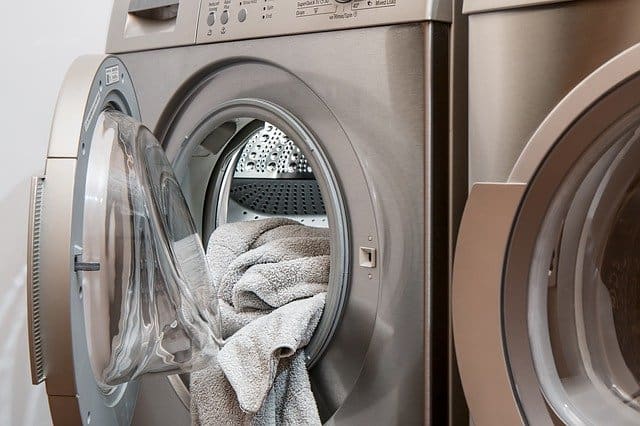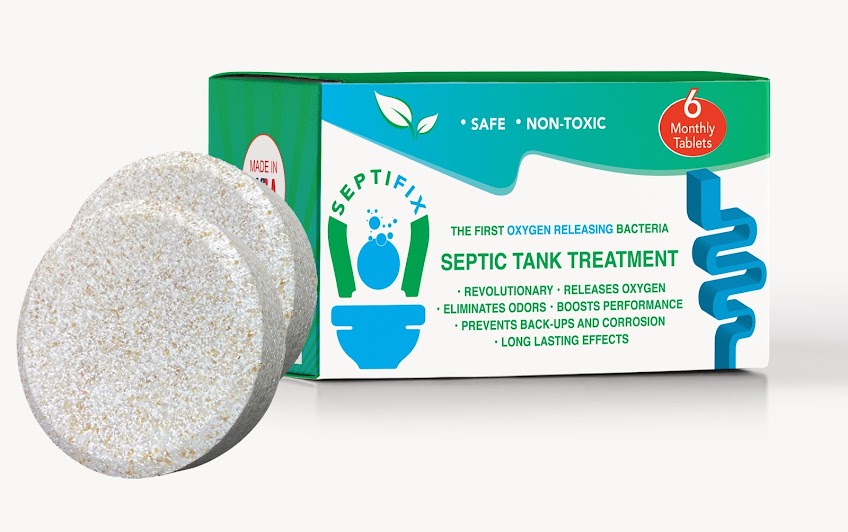How Many Loads Of Laundry A Day Are Safe For Your Septic System?
A septic tank gives as good as it gets. Treat it nicely by not running a large number of laundry loads on one day, and it will function smoothly for many years. In this article, we will take a look at why it’s necessary to regulate the daily usage of your washing machine to maintain your tank’s good health.
So, how many loads of laundry a day are safe to do with a septic tank? The answer is five in the majority of cases. But mind you, this figure may vary depending on the size of the septic tank.
Continue reading to find out the factors that impact the number of loads of laundry you can safely do per day with a septic tank, why you shouldn’t exceed your daily limit of laundry loads, the best laundry tips to ensure your septic tank works properly, and why your choice of detergent can make a big difference.
Call Septic Service Pros 1.855-925-0760 For Service or Request a Quote
Want to watch a video instead?
Factors Impacting the Number of Laundry Loads You Can Do With a Septic Tank
Three factors affect the number of loads of laundry you can do per day with a septic tank. These are:
- The size of the septic tank
- Whether your washing machine is old or new
- Whether your washing machine is front loading or top loading

Typically, a washing machine consumes roughly 30-40 gallons of water per load. In case you do five loads of laundry in a day, that will pump approximately 150-200 gallons of water into the lateral lines.
The majority of septic systems have an absorption area of 600-900 square foot. Considering that the average absorption capacity of the soil is one-third of a gallon of water per square foot, five loads of laundry per day would roughly be the maximum number of laundry loads a normal-sized septic tank could handle on a daily basis.
However, if your septic is bigger than normal, you may well be able to do more than five loads of laundry per day. Likewise, for a smaller septic tank, fewer than five laundry loads a day may be recommended.
Whether you use an old or new washing machine also impacts the maximum number of loads of laundry you can do in a single day. Older washing machines use far too much water than newer models. While an old washing machine easily consumes 30-40 gallons of water per load, a new washer uses as little as five to 15 gallons of water per load.
To cut a long story short, you are likely to be able to do more loads of laundry per day with a new washer compared to an old one.
Another factor that plays a role is the type of washing machine you use. A front-loading washing machine consumes less water than top-loaders and as such may allow you to do more laundry loads per day.
Call Septic Service Pros 1.855-925-0760 For Service or Request a Quote

Why Does It Matter How Many Loads of Laundry I Do With a Septic System?
Septic systems are designed with a specific capacity depending on the amount of water a household normally uses. Since how well a septic tank functions depends mainly on the amount of water that flows into it, it is important for you to know exactly how many loads of laundry per day are okay for your system.
When a septic tank is working properly, solid waste settles down nicely at the bottom of the tank. As a result, bacteria in the tank are able to efficiently break down the organic waste. This delicate balance, however, gets disturbed when the wastewater flowing into the tank exceeds its holding capacity.
Overloading prevents solid waste from comfortably settling down and limits the necessary bacterial activity. The latter, in turn, increases the risk of solid flooding into the drain field and clogging it.
If the drainage gets clogged, your septic tank’s efficiency will drop considerably. You can experience backups in plumbing fixtures or water leakages. In the worst-case scenario, your septic tank system may breakdown completely, costing you thousands of dollars to replace it.
Laundry Tips to Ensure Septic Systems Work Properly
Apart from not exceeding your daily maximum number of loads of laundry, there are several other small yet effective steps that you can take to keep your septic system in top condition.
- Clean Out Lint Trays
Just like your dryer, your washing machine also has a lint tray. It is important that you clean it on a regular basis—and by regular we mean just that, not once in six months.
Lint and laundry debris can escape into your pipes and cause severe blockages, which, in turn, can break down the entire septic system. We’re sure that’s the last thing you would want, so take this tip seriously.
- Properly Load Your Washing Machine
Using a large setting for a small load is a big no-no. That’s because it supplies more water into the washer than it needs, resulting in wastage of both water and energy. Don’t want that? Then make sure the washer is set to the smallest option when you run a partial load.
- Go Easy on Bleach
You’ve probably heard that it’s not okay to use bleach in a septic system. Surely, you’ve heard the opposite as well—that it’s perfectly fine to do so.
So, which of these statements is true?
Well, the thing is you can use bleach in a septic system, but don’t overuse it. When used in moderate amounts, bleach doesn’t harm your septic system. However, its excess use can kill the bacteria, which, as you’ve already seen, badly affects the system’s efficacy.
This raises the question: How much bleach is too much?
According to the Clorox website, three-fourths of a cup of bleach per wash of laundry is what you should aim for. Anything more than too much and can harm your septic tank.
- Consider Using Vinegar Instead of Fabric Softener
A liquid fabric softener doesn’t augur well for the septic tank since it can plug the soil in the absorption area. In place of a fabric softener, use vinegar. It effectively neutralizes soap and softens clothing without harming the septic tank.
- Apply Stain Remover Directly to Stains
Stain removers can contain cleaning agents that are bad for bacteria living in the septic tank. Therefore, avoid adding them directly to the water in the washing machine. Instead, apply them directly to stains to limit their usage.
Why You Should Always Pick a Quality Detergent?
There are many types of detergents available in the market, but not all detergents are made equal. From a septic tank’s health point of view, some detergents are much better than others, and these are the types you should buy.
As said earlier, your septic tank is filled with bacteria. The friendly, anaerobic bacteria do the all-important job of mineralizing and decomposing the waste at the bottom of the tank. So much so that bacteria transform approximately half the pollution in a septic system into liquids and gasses.
When you consider this fact, it’s easy to see why their longevity plays a crucial role in your tank’s health. One smart way to extend the life of bacteria is by using high-quality detergent.
Which begs the question: What kind of detergent is the best for homes on a septic tank system?
The answer is liquid laundry detergents. That’s because they have less fillers compared to powder detergents and hence dissolve far more readily into the system.
However, this doesn’t mean powder laundry detergents are completely off-limits. As long as you bring home a quality product, you don’t really have to worry about anything. So if you want to use a powder laundry detergent, make sure you read all the labels.
Pick a detergent that is biodegradable, has a low level of surfactants, and contains zero phosphates. Phosphates are awfully bad for a septic tank because they encourage algae growth in the drain field. This, in turn, depletes the oxygen that bacteria need to live and break down waste. In short, avoid detergents having phosphates like the plague. They may save you a few bucks in the short run, but could end up costing you big should a problem with your septic tank occur.
Related Questions to How Many Loads of Laundry a Day Are Safe With A Septic Tank
Are Washing Machines Bad For Septic Tanks?
The answer is No. Washing machines are not bad for septic tanks. The volume of water that a home washing machine excretes into the septic system doesn’t pose a problem in normal circumstances. That said, if you run more than five loads on a regular basis or use poor-quality detergents or use too much bleach, your septic tank’s health may take a hit.
Is it better to do smaller loads of laundry with a septic tank?
No, not really. From the point of view of your tank’s health, the question is not whether smaller loads are better than larger loads. The main thing is to use a setting that’s appropriate for the load you’re running and to avoid running a large number of loads on one day.
References:
https://www.petesoutflow.com/how-excessive-water-affects-your-septic-tank-and-what-to-do










